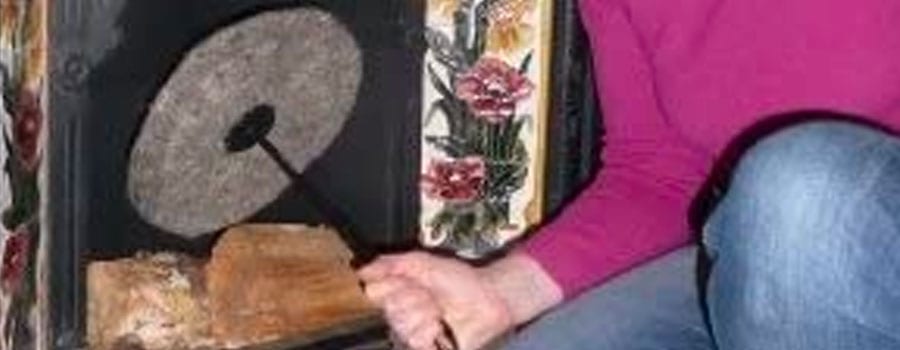Money spent today and invested into your home will see substantial long-term savings, especially if you then put that money into your pension or ISA, meaning over your adult life you will see potentially tens of thousands of pounds saved (we estimate a max of around £50,000) which you can spend on far more enjoyable things!
NOTE: This article was originally written in 2021 when the cost of electricity / gas was significantly lower
Lower the flow temperature on your boiler to between 50°C to 60°C (~£70 saving per year compared with paying full price)
- Combi boiler (no hot water tank): Set the flow temperature to 50c for heating and 55c for hot water.
- If you have a boiler and a hot water cylinder: Set 60c for heating and hot water, and set your hot water cylinder to 60c (this is to ensure you kill any bacteria in the hot water)
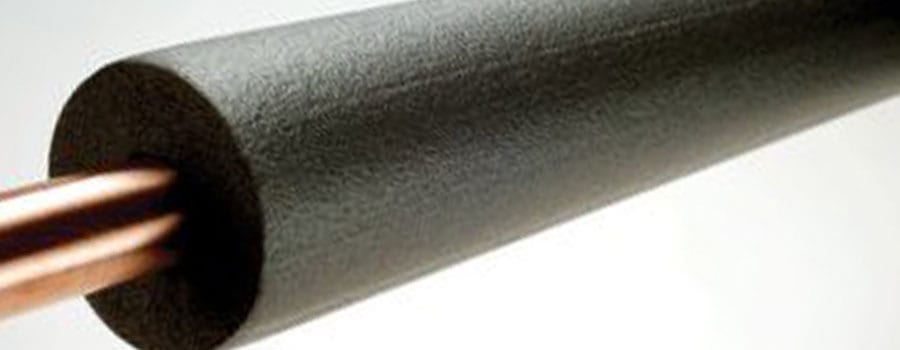 Insulate your exposed hot and cold water pipes with foam and tape (£10 saving per year or £632 over your adult lifetime)
Insulate your exposed hot and cold water pipes with foam and tape (£10 saving per year or £632 over your adult lifetime)
Very simple, it keeps your hot water hotter for longer and prevents cold water from freezing which means you spend less money on electric/gas to heat it back up or repair the damage.
Buy some of these from Wickes or Screwfix & some of this tape.
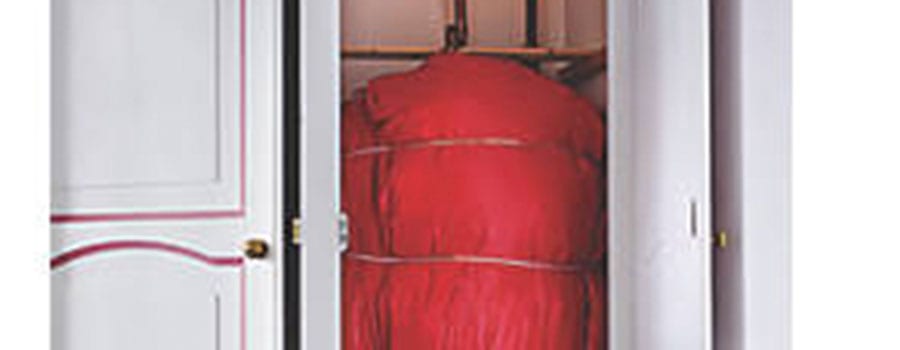 Hot water tank insulation or upgrading your existing (saving between £8 & £125 a year meaning a lifetime saving of £506 to £7,907)
Hot water tank insulation or upgrading your existing (saving between £8 & £125 a year meaning a lifetime saving of £506 to £7,907)
Only applies to those with an older hot water tank, if you have a combi boiler you can ignore this.
Upgrading your tank insulation from 80mm from 25mm should save you ~£20 per year (or £1625 in your lifetime) and if you have just the tank with no insulation that saving will be even higher.
Buy this hot water tank insulation kit or try here
 Adjust your hot water heating times (hard to measure savings), and maximum temperature and ensure you turn off your heating (automatically) when away from home
Adjust your hot water heating times (hard to measure savings), and maximum temperature and ensure you turn off your heating (automatically) when away from home
For those with hot water tank:
You’re likely heating your water too many times per day and whilst there is a fine line between ‘just the right amount of water’ and ‘having a cold shower’ you may wish to play with the timer on your hot water tank to ensure it’s only heating at the right times (i.e. 30-60 minutes before you’re likely to need hot water), adjust it until you notice it becoming an issue.
For everyone:
For your home’s heating again you might find you’re actually overheating your house, try and lower the temperature down and consider adjusting your overnight / away settings to save more money.
Reduce the time you shower (aim for 4 minutes to save up to £70 per year)
It’s remarkable how long some of us spend in the shower, the quicker you can be in and out the less hot water you need.
Light a candle (or three), just be careful for the obvious reasons

The famous Yankee Candles from eBay are great as they smell soooo good and seem to last forever however you can buy cheaper alternatives from places like Home Bargains etc, just check the burn times!
You can even create Candle Heaters for extra warmth however it’s EXTREMELY important that you get a Carbon Monoxide Alarm and use it in the room to avoid accidentally killing yourself!
Swap baths for showers (£12 saving per year)
A long hot bath can be very relaxing (which is good for your mental health) but if you’re bathing just to get clean and have a shower available consider showering instead.
Stop boiling more water in the kettle than you need (£11 saving per year)
Avoid overfilling the kettle, instead, just fill it with enough for what you need.

Go elsewhere, library, friends house, events etc
Let someone else pay to keep you warm. Volunteer your spare time to a local cause or just go and meet a mate to warm up somewhere.
Hang your knickers on the line – Ditch the tumble dryer (saving up to £60 per year)
Even in winter, you can hang washing outside to dry, the old rule of if there are puddles on the ground stop but if not then it’s good to dry. In winter the majority of drying can be down outside you would then bring inside for the final bit of drying.
 Add extra insulation to your loft (saving between ~£10 & £215 per year, which over your adult life would be £630-£13,600)
Add extra insulation to your loft (saving between ~£10 & £215 per year, which over your adult life would be £630-£13,600)
More loft insulation is an easy way to better insulate your living area from excessive cold and heat, 270mm of insulation height is recommended. Expect to pay between £350 & £1800 for loft insulation depending on the size of your house but doing it yourself (with the right protective gear) will likely be cheaper.
Buy these + consider some of this (for things like loft doors) or try and see if you can use grant money.
p.s. ensure any downlighters are suitably protected
Wrap up warm
It sounds so obvious but we still see people walking around in t-shirts and thin jackets moaning how cold it is, we find it difficult to stop ourselves from having ‘the chat’ with them!
- Thermal Socks
- Thermal underwear
- Thick Dressing Gown
- A thermal hat in bed is ideal for anyone with not much hair
- Extra bedding like a 13.5 tog duvet on top
Shut those curtains early & shut any doors that lead to unused rooms
Thick curtains or even thermal curtains from eBay are ideal to keep heat in and the cold out, they cost more to buy however long term they will save you a lot of heating waste. If you don’t want to spend the extra on thick curtains you can make them yourself by adding thermal fleece to the back of your curtains or for added heat protection use a PVC shower curtain. Remember curtains don’t just have to ‘protect’ windows, you can also cover doors. Important: Make sure you open them up during the day to allow the sun to penetrate and warm the room up!
Making a ‘tent’ over your bed can keep in warmth as well, make sure fresh air can enter as well.
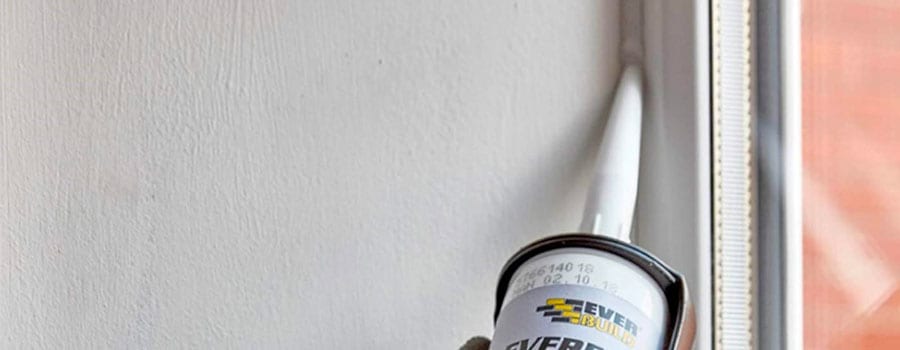 Fill any internal and external holes around windows or doors (savings are hard to measure but merge with the next tip for a good idea)
Fill any internal and external holes around windows or doors (savings are hard to measure but merge with the next tip for a good idea)
Silicone or Caulk is a great first step to stopping that pesky cold air from entering your house, you will want an adhesive gun as well.
 Use or replace rubber seals around windows and doors (saving of around £20 per year or £1265 in your lifetime)
Use or replace rubber seals around windows and doors (saving of around £20 per year or £1265 in your lifetime)
These self-adhesive stick-on rubber (check your existing ones to see which style you need) or brushes help to better seal your windows and doors, which is ideal if you have older windows and doors or they’ve been painted over etc.
 Improve your radiators by fitting reflectors (saving £5-£20 per house per year based on 5 radiators or £316-£1265 over your adult lifetime)
Improve your radiators by fitting reflectors (saving £5-£20 per house per year based on 5 radiators or £316-£1265 over your adult lifetime)
These simply reflect (up to 95% of the heat) into your house instead of heating up your wall. The savings will vary on your exterior wall insulation type (i.e. modern houses with high-quality insulation may not be worth doing), however, even a newly insulated wall will likely net you enough money in the first 4 years to pay back your initial investment.
Some people use tin foil to do this, which can work but we’re not sure how well it works long-term.
 Cover up the plastic/copper Radiator Pipes with chrome (savings negligible but looks good which may help you sell your house in the future)
Cover up the plastic/copper Radiator Pipes with chrome (savings negligible but looks good which may help you sell your house in the future)
If you’re on TikTok you’ve probably seen endless videos on this but whilst these aren’t great ways to insulate your pipes they do turn ugly-looking pipework into something to be proud of which makes your house look better and will likely make it easier to sell in the future.
These snap-on chrome covers take a few seconds to install.
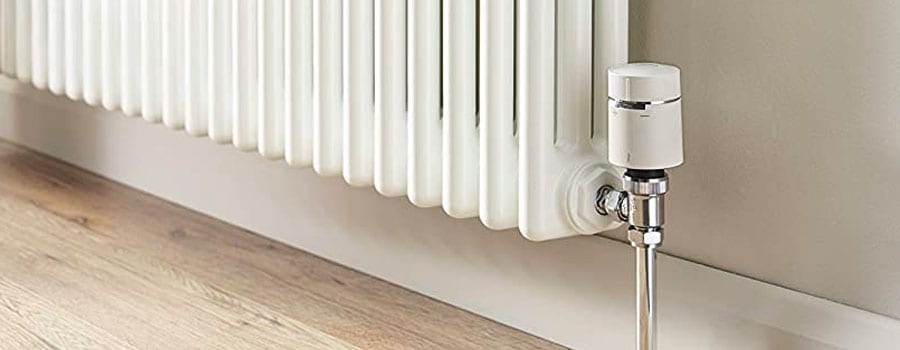 Only heat the rooms you need via Smart Radiators or turning them off manually (saving of up to 40% on your home heating energy usage compared with heating unnecessary rooms = potentially £180 per year or £14,626 over adult lifetime)
Only heat the rooms you need via Smart Radiators or turning them off manually (saving of up to 40% on your home heating energy usage compared with heating unnecessary rooms = potentially £180 per year or £14,626 over adult lifetime)
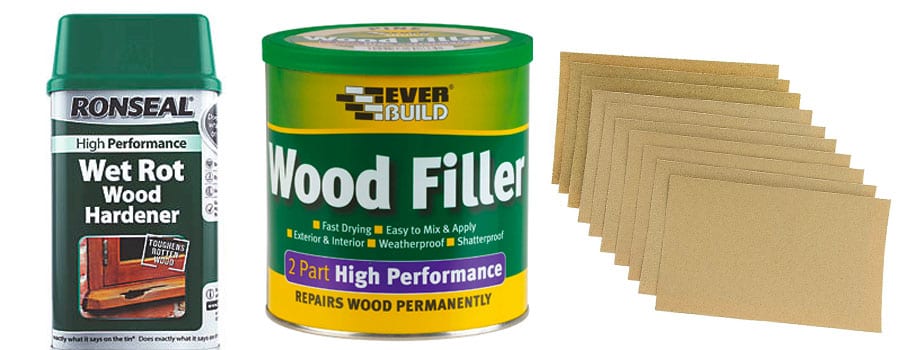 Fix Rotten Windows/Doors (savings hard to measure but likely ~£20 per year or £1265 in your lifetime)
Fix Rotten Windows/Doors (savings hard to measure but likely ~£20 per year or £1265 in your lifetime)
Similar to holes around your window frames, damaged wooden windows can also negatively affect your heating + your home’s resale value.
Buy Wet Rot Hardener or from Amazon and then use a 2-part wood filler to fill the damage (watch this video to see how)
Release the heat! Oven + Radiators!
Keep the oven door open after you’ve turned it off – it might only add a few minutes of heat but surely it’s better than it being wasted?
Move furniture away from radiators, one side of a sofa could be absorbing as much as 50% of a radiators heat! For added reflection of heat + to stop a radiator from just warming up your walls use a radiator reflector. Adding a shelf (not too close) above a radiator can also ‘aim’ heat towards those in the room, especially useful for tall rooms.
10% of heat loss comes from floors, get yourself a rug from eBay or even carpets to keep the heat in the room + they will keep your feet warm
Consider Solar Powered Hot Water (saving £60-£70 per year or £3,700-£4428 over your adult lifetime + potential for Government’s Renewable Heat Incentive (RHI) payments of ~£200-£525 per year or £12,600-£33,200 over your adult lifetime)
With an initial cost of £4000, it’s not going to be a cheap investment but if the incentives are available to you it can be a great saving long-term.
Find an accredited installer here
Got a chimney you don’t use or use rarely? Plug it (~£17 saving per year or £1075 over your adult lifetime)
Buy a Chimney Balloon or Chimney Draught Excluder to prevent heat loss, you can use plastic or even sheep wool to do this just remember to remove it before you relight your fire!

Seal your postbox and consider wrapping single glazed windows (savings hard to measure)
A letterbox with brushes, a keyhole cover and door edge draught excluders can all help
Use thermal or thick curtains to prevent draughts and keep heat in the room + shut any doors that lead to unused rooms (hard to measure savings)
Thermal curtains are good at helping to prevent excessive heat from the sun in summer and heat loss in winter. Ensure you also shut all doors to any rooms you don’t actively heat/use.
 Move your gas and electricity from ‘The Big 6 Standard Tariff’ to renewable energy providers to make the earth cleaner but also likely save you money (savings drastically vary per person/postcode)
Move your gas and electricity from ‘The Big 6 Standard Tariff’ to renewable energy providers to make the earth cleaner but also likely save you money (savings drastically vary per person/postcode)
Seek Financial Support from your Energy Provider
If needed, there is financial support available.
- £150 Disability Cost Of Living Payment
- £300 Cost Of Living Payment For Pensioners
- £650 Cost Of Living Payment For People On Benefits
- £150 Council Tax Rebate
- £400 Help With Energy Bills Payment
Look at Government Grants for insulation, a new boiler or even money off your bill

Your energy provider should be able to also offer you free energy saving guides or support similar to the Government Grants
If you don’t qualify for a grant then it’s still very important to get your house properly insulated, it might seem a daunting task but it can save you hundreds over the years! Three rolls of 8in insulation should be enough for most homes just remember to buy a face mask and goggles if installing it yourself!
Remember to seal your loft door with draught excluders as well
Contact your MP to push them to force change and campaign for fairer pricing or vote them out
- Writing to your MP may feel like a waste of your time but if we all did it, change may happen quicker.
[Tongue in cheek] Have more friends around and have more sex (not necessarily at the same time, savings unlikely but might help in winter)
When humans get together houses get hotter the same is true when you have sex 😂 Obviously the problem with this is that both of those things are likely to cost you more in other expenses compared with simply heating your home.






